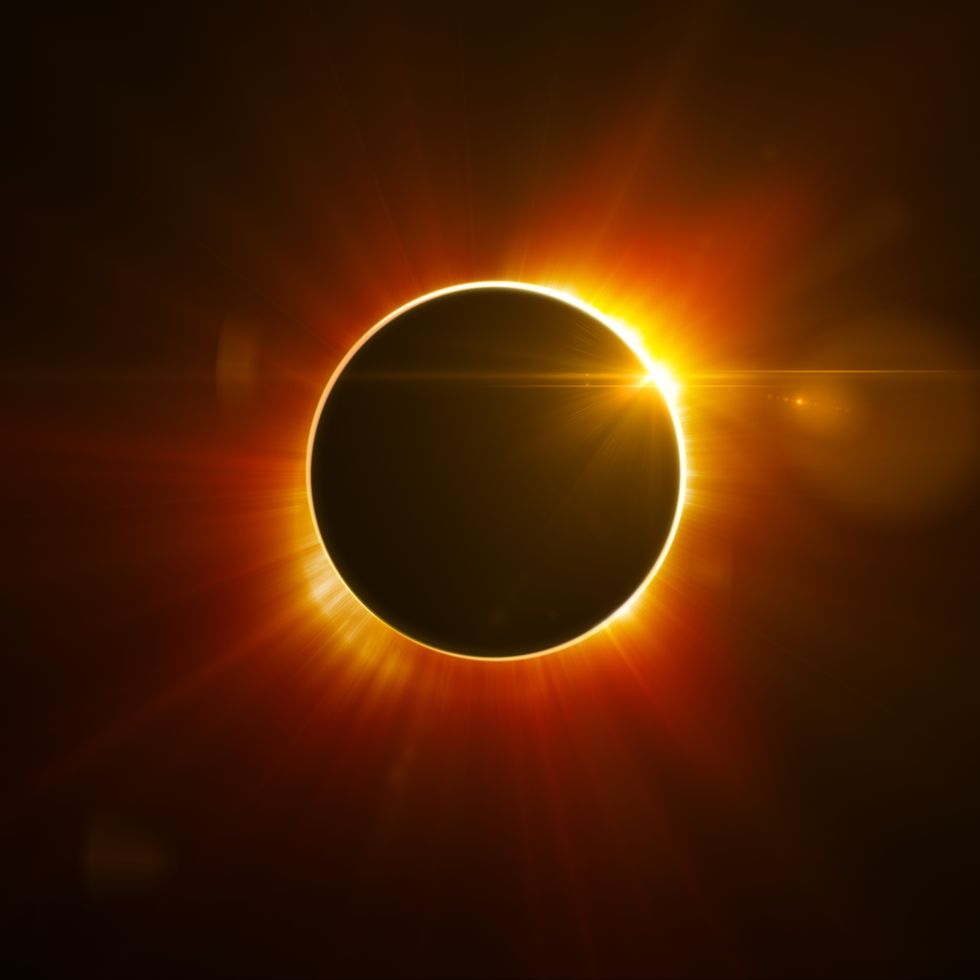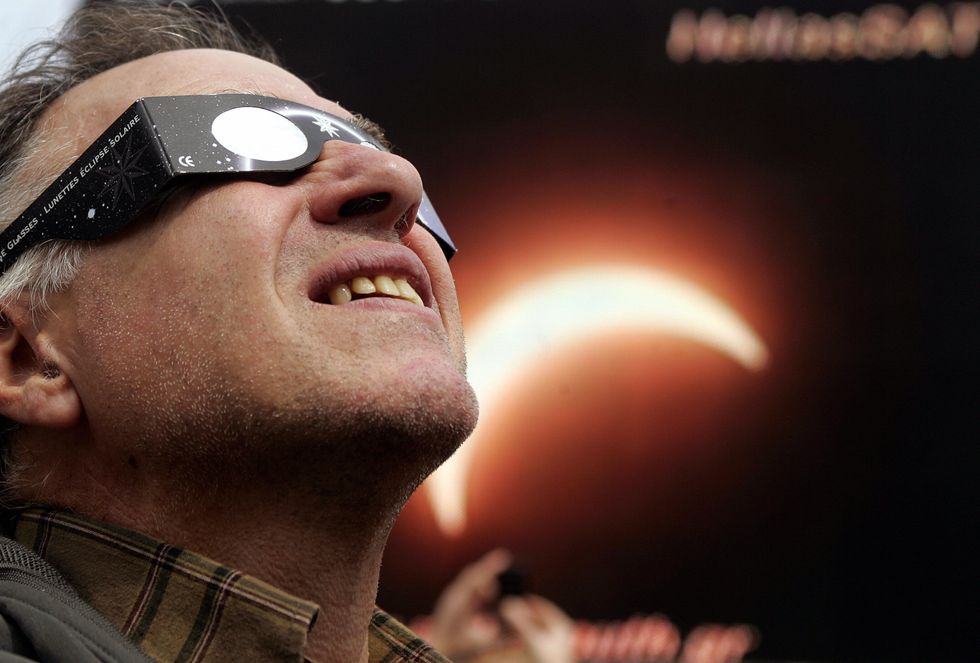The upcoming eclipse could have a huge impact on the human brain
Getty
Britons in certain areas will be able to witness the phenomenon on April 8
Don't Miss
Most Read
Trending on GB News
The upcoming solar eclipse may have a “profound impact” on the brain, as it evokes the emotion of awe.
The astronomical event occurs when the moon temporarily obscures the sun and casts a dark shadow across the earth.
Experts have said that witnessing such a phenomenon could inspire humanity to have greater care for one another and foster a larger sense of humility in individuals.
“People may be more affiliative – they may say that they have closer social ties with others – and they feel more connected to their community,” said Sean Goldy, a psychologist at Johns Hopkins University, who has investigated the psychological effects of the 2017 eclipse.

Viewing a solar eclipse could inspire a sense of awe in observers
Getty ImagesAwe, an increasingly fashionable area of scientific study, is defined as a feeling of wonder and amazement that often leaves people feeling small and insignificant as a result.
“It's an emotion you feel when you perceive something that is vast and which challenges your view of the world,” said Jennifer Stellar, a psychologist at the University of Toronto.
Researchers believe that experiencing awe can humble our abilities and shrink egos, as well as witness people in a new light.
During the 2017 Eclipse, Goldy collected data from social media from users who had witnessed the eclipse.
LATEST DEVELOPMENTS:
Analysing the language from posts, he noted that many users used words such as “amazing” or “mind-blowing”, which Goldy constitutes as symbolising awe.
He also observed the use of words such as “maybe” and “perhaps” from those same users, which he infers as implying humility.
The results determined that people in the path of the eclipse were twice as likely to use the above words.
A solar eclipse happens on average between two to five times over a year but they are not always visible to humans as they do not all take place over land.

Researchers believe that experiencing awe can humble our abilities and shrink egos
GettyA total solar eclipse – which will occur over the US, Canada, and Mexico next week – only happens once approximately every 18 months.
For the upcoming event, the total darkness will last as long as four minutes and 28 seconds, double the length of a similar eclipse that occurred in 2017.
Over 40 million people live inside the 115-mile-wide path where the total eclipse will be visible.
For those living in the UK, a partial solar eclipse will be visible from in and around six cities- Manchester, Liverpool, Leeds, Edinburgh, Glasgow, and Cardiff.








